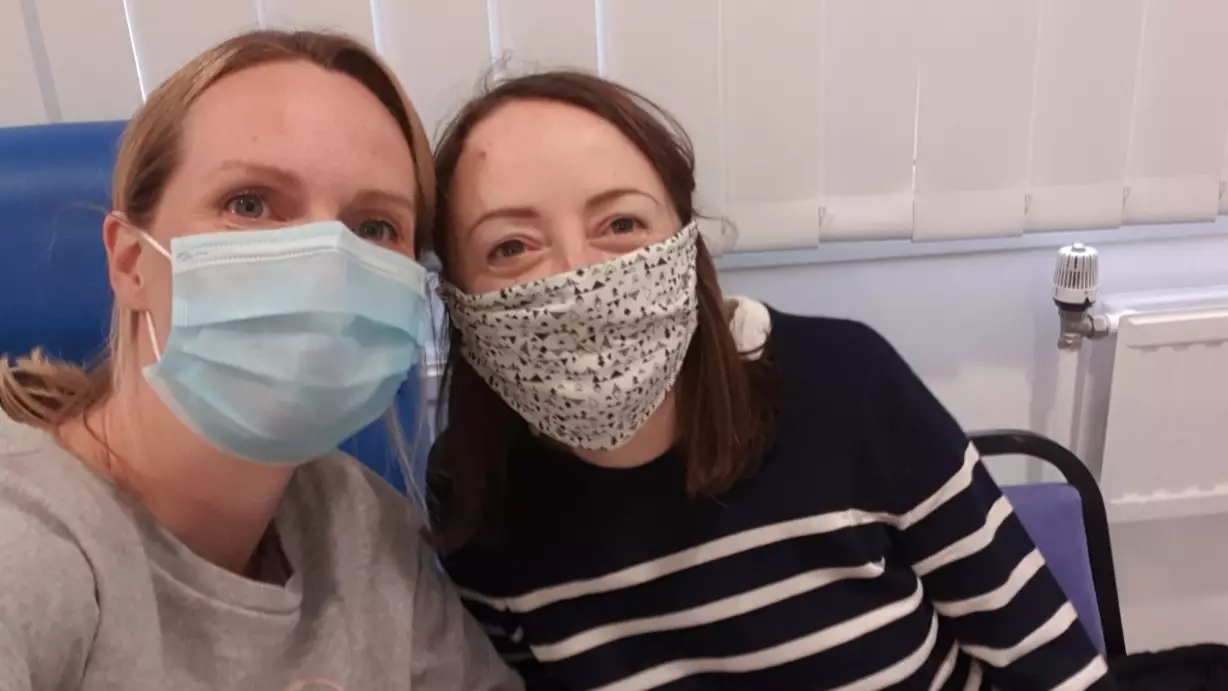
On a crisp Sunday afternoon in March 2019, long before any of us had even heard of Covid-19, Kate and her husband Nick made a decision that would change the course of their lives forever.
Over a pub lunch, the couple decided to embark on a journey with two strangers they had met through a surrogacy agency just weeks earlier: the four of them agreed to have a baby together.
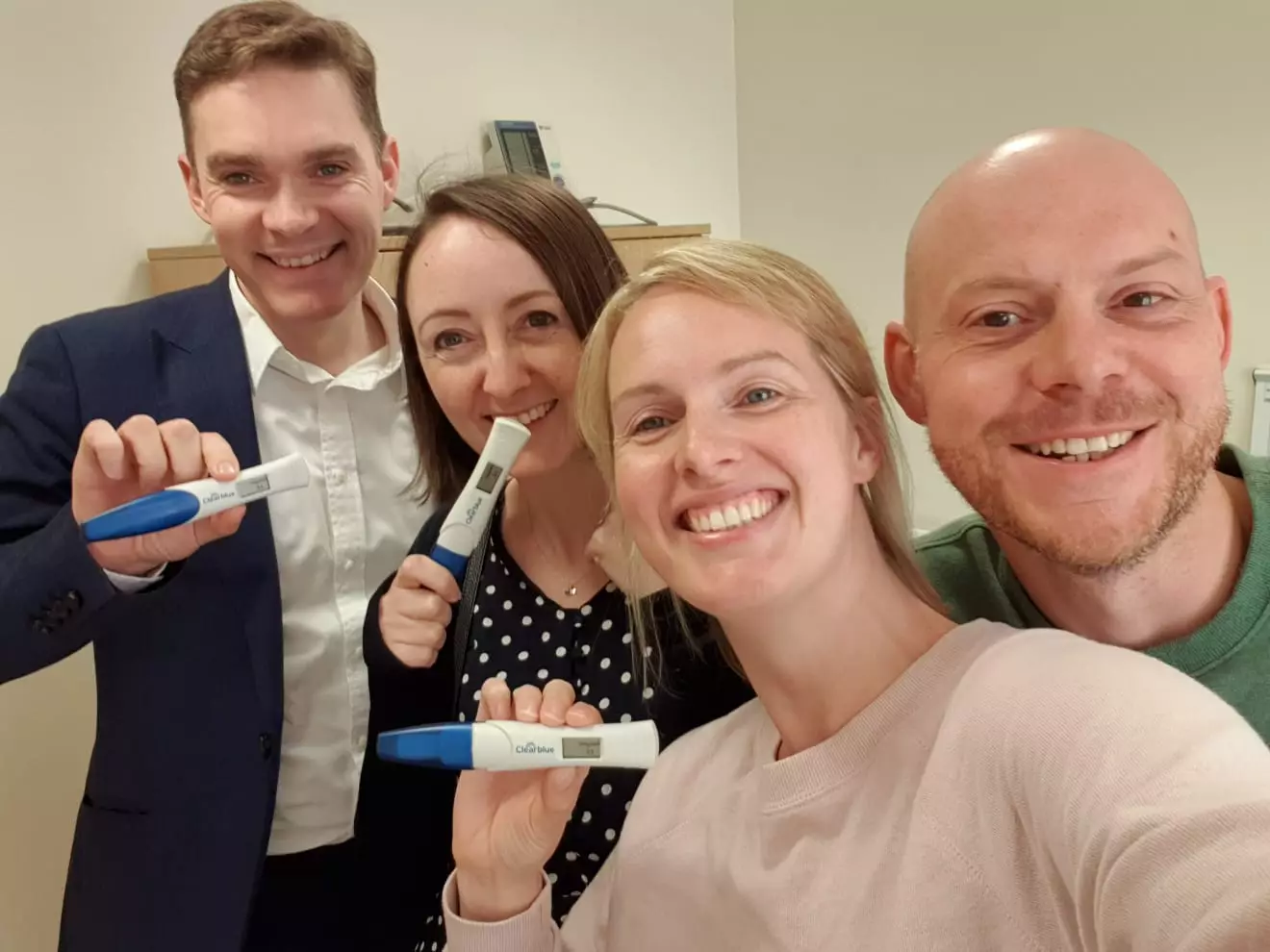
Advert
This moment had been a long time coming for Kate, who was desperate for a child since breast cancer had left her infertile seven years earlier.
Meanwhile, mother-of-one Shelley - who had watched a friend go through a similar experience - had been desperate to help other couples who couldn't conceive.
Along with her husband Phil, she signed up to surrogacy agency Brilliant Beginnings and was put in touch with Kate and Nick.
After weeks of speaking on the phone, the two couples met at a local pub between their home towns of London and Cambridge where, as they chatted over lunch, Shelley agreed to carry their baby.
Advert
Once the paperwork was finished and a 'surrogacy agreement' complete - in which Kate and Shelley had to work through certain scenarios (for example, what would happen if Shelley became ill?) they were ready to go ahead.
In the UK, only "reasonable expenses" can be paid to a surrogate, and in Shelley's case these costs were calculated before she was even matched to Kate and Nick.
Although Kate had tried to harvest some eggs before undergoing her cancer treatment, the process had ended in disappointment and heartache. Out of the eggs that were harvested, only one was fertilised and sadly, Kate miscarried.
The couple therefore decided to use a donor egg along with Nick's sperm to create the embryo which would be implanted into Shelley's womb.
Advert
After six months of longing and anticipation, Shelley, who already has a little boy, broke the happy news that she was finally pregnant and their journey as finally underway.
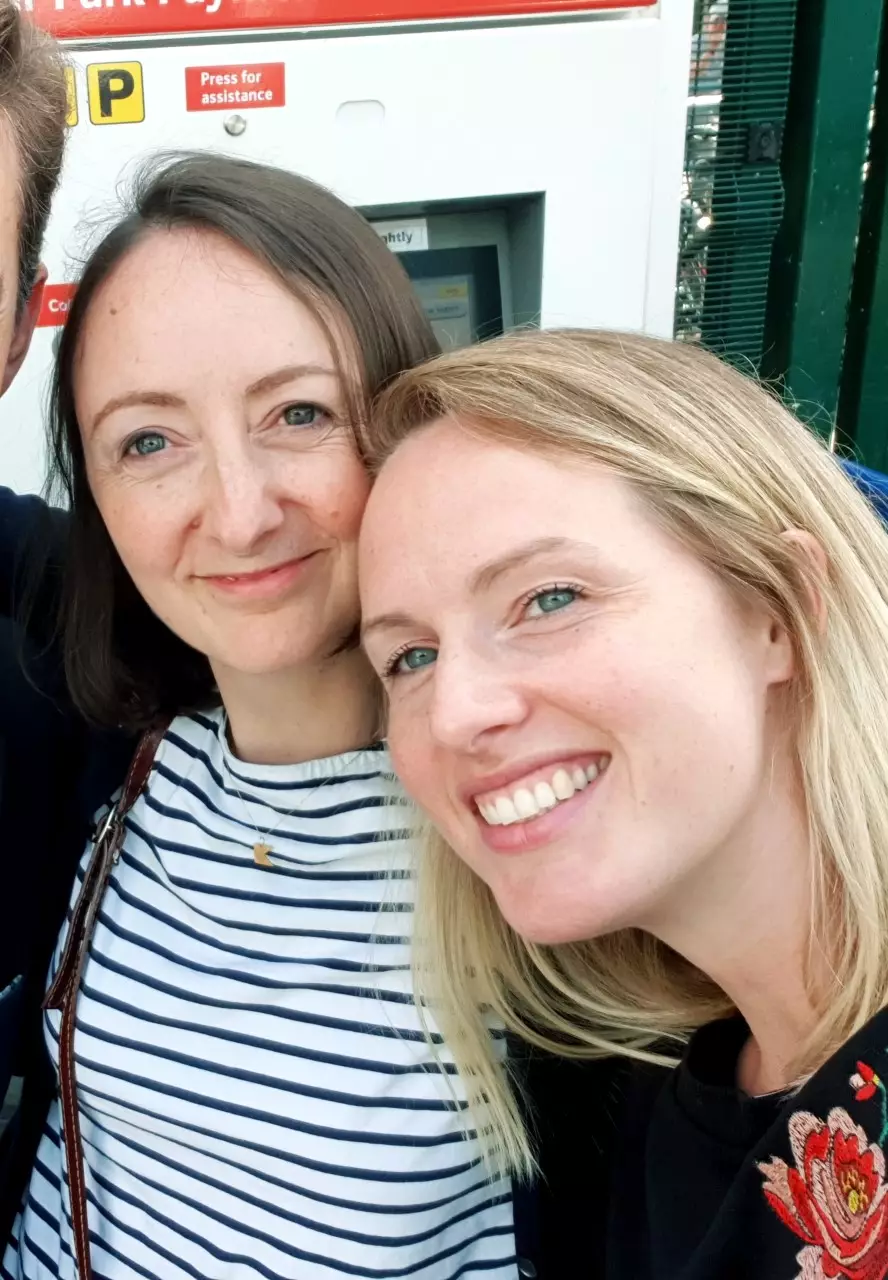
Fast forward six months and the world is a very different place. Expectant mums are heading into maternity units alone, antenatal classes have been cut (with a number of sessions rescheduled virtually) and many pregnant women are growing increasingly anxious about the prospect of delivering their babies in the middle of a pandemic, often without their planned birthing partners.
For surrogate families - where the restrictions and rules not only affect the surrogate, but also the baby's intended parents - it's particularly complex.
Advert
While many new mums-to-be are cocooned at home waiting for their little one to arrive, Kate and Shelley, who had previously been meeting every two weeks, have been forced apart.
For Kate, it's the small things that have been the most difficult to accept, like not being able to feel her baby son kicking.
"Up until that point, Shelley had been letting me put my hands on her tummy to feel him kicking," Kate tells Tyla. "Obviously we can't do that anymore.
"Instead, she's been sending videos and we've been recording voice notes which Shelley plays the baby through her tummy."
Advert
Currently, expectant mums are allowed just one birthing partner for the duration of labour and delivery, at most NHS hospitals. If they have a cough, cold or gastro symptoms, they cannot be a birthing partner.
For surrogate families, this is particularly hard. In the case of Shelley, having to choose between your husband or one of the intended parents can feel like an impossible dilemma.
"In my imagination, the birth of our baby was supposed to be the four of us together in the hospital room," Kate says.
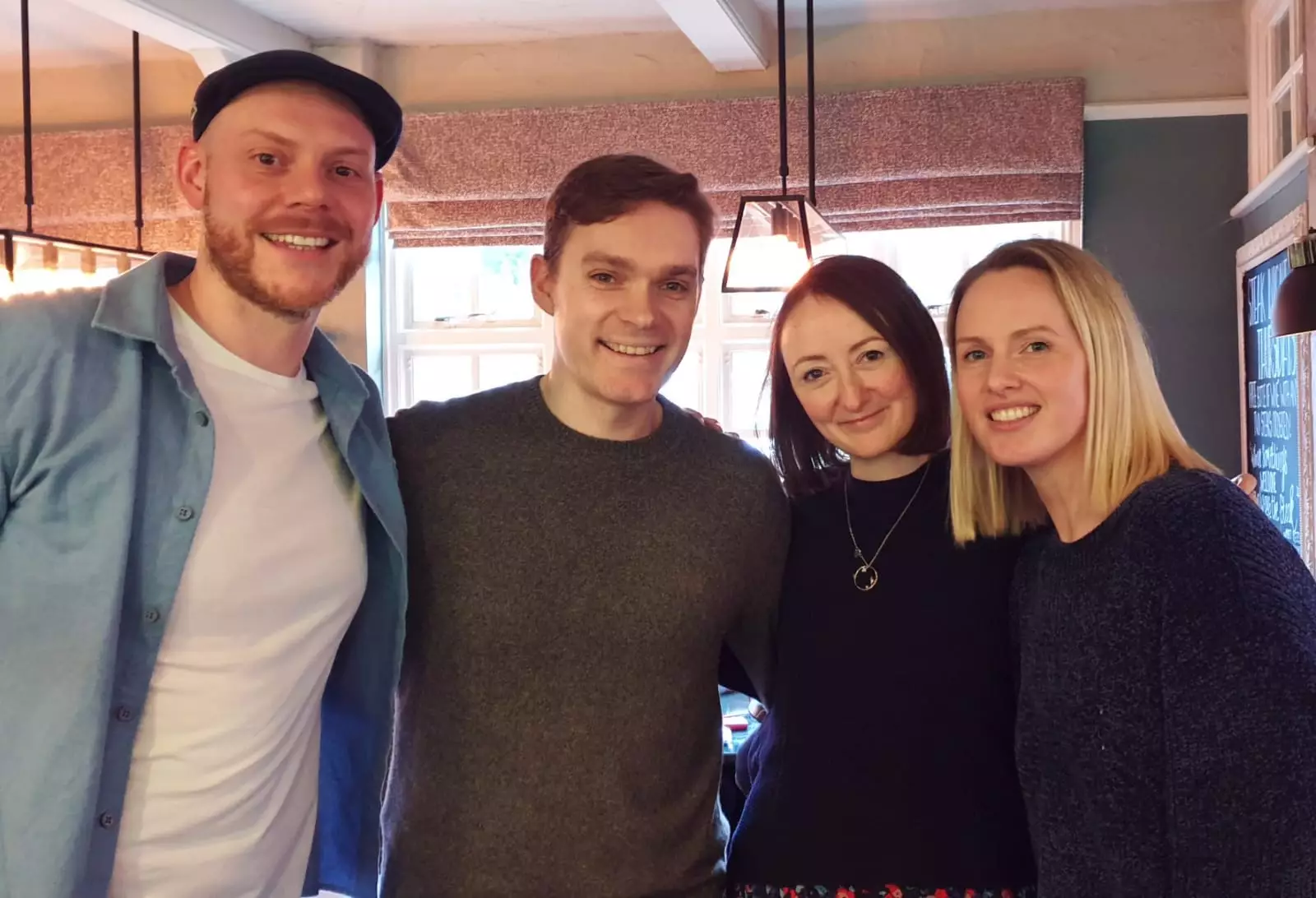
"We should have been at every scan throughout the pregnancy. Now, when the baby comes along, we've no idea how long it will be before our family can meet him properly.
"Instead of the four of us, it's just going to be me and Shelley [in the delivery room]. She's having an elective caesarean and I'll be with her in theatre."
Kate has tried to remain positive throughout the process and, while she is heartbroken to not have Nick at the birth, she's incredibly grateful that Shelley had sacrificed having her own husband by her side.
"That was really tough," she admits. "I feel like the government guidelines haven't necessarily taken surrogacy into consideration. If you're allowed one birth partner, it's normally [the baby's father], but in this instance there's more of us and it cuts out Nick."
In lieu of skin-to-skin contact, Nick has been sleeping with a muslin cloth to give it his scent, and they'll wrap the baby in it when he's born.
One of the most difficult parts for Kate has been her anxiety over Shelley's wellbeing, which has been heightened dramatically during the pandemic and by the fact that the two women can't see each other.
"I feel this huge weight of responsibility towards Shelley. I know she signed up to this whole process but I've constantly been thinking is she okay, how is she doing?
"It's amazing to have someone make this offer for you, and you don't want them to be put out in any way."
While many expectant mums are focusing on getting through labour in the safest and healthiest way possible, becoming a new mum amidst coronavirus can be particularly lonely, especially without the physical support of extended family.
"[Going to NCT classes] hasn't happened and meeting up with friends and other mums in cafés was something I really wanted to do," Kate explains.
"There are various Facebook groups that I've connected with so it's still happening virtually, but it's not a normal process." For Kate, one of the most heartbreaking things is knowing her child will not be able to meet his grandparents for the first few weeks of his life.
"They're really sad they won't be able to see the baby when he first arrives," she says. "And my parents wanted to meet Shelley before the birth. We really wanted to have the families come together beforehand."
There are some parts of the surrogacy process that haven't changed, however. For example, a contract has been put into place that explains what will happen after the baby is born and who will hold the baby first.
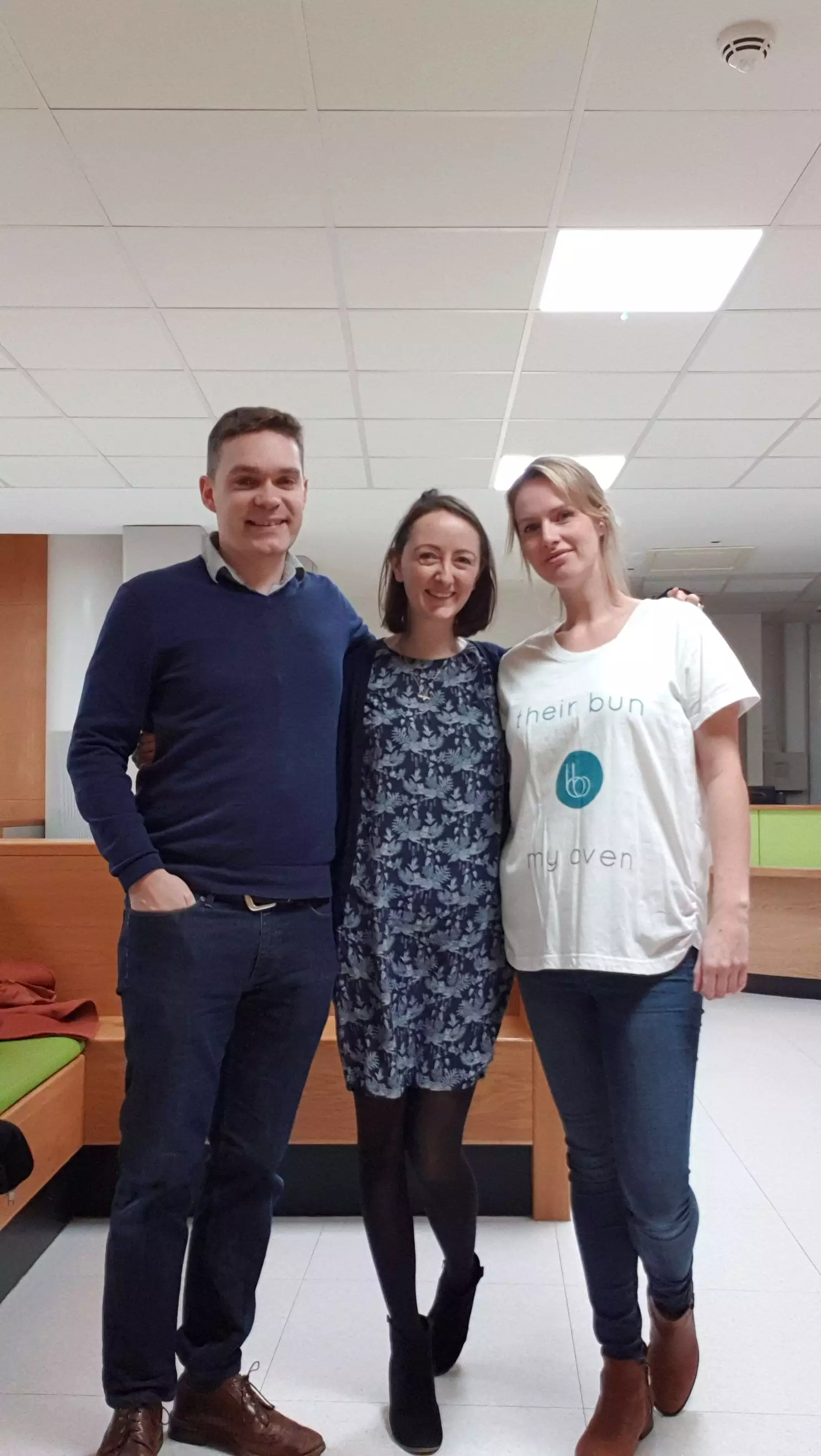
"Once he arrives, he will come to me first," Kate says. "There might be some tests he will need afterwards, but the baby will leave [hospital] with me and I'm hoping Shelley and I will be able to leave at the same time.
"Throughout the whole process - and especially with coronavirus - we've completely trusted each other to be honest about how we're feeling about things. I can't imagine what it would be like to feel like you didn't trust the other person. We're so incredibly grateful."
Shelley says:
"I was about seven months pregnant when things really started kicking off with coronavirus. But me and Kate were on the same page from the start, and even before the restrictions came in we were keen not to go out, to stay inside and stay safe.
"My friend had breast cancer about six years ago - she is also called Kate - and at the time, I thought if she couldn't end up having children then I would be her surrogate.
"In the end, she was able to conceive naturally but a couple of years ago I started to think about whether I wanted any more children and began considering surrogacy again. That was in June 2018. I was accepted a few months later and then me and Kate 'matched' in the February.
"We ended up meeting for a Sunday lunch and by the end of it we just said 'let's make a baby together!'
"Not having my husband at the birth will be difficult. It's always been my choice and there are other surrogates out there who have chosen a partner over an intended parent, but I just couldn't do that.
"The whole point of doing this is to see Kate hold her baby - and I'm not missing that for anything."
Shortly after Tyla's chat, Shelley and Kate welcomed a baby boy on Wednesday 29th April. All three are doing very well.
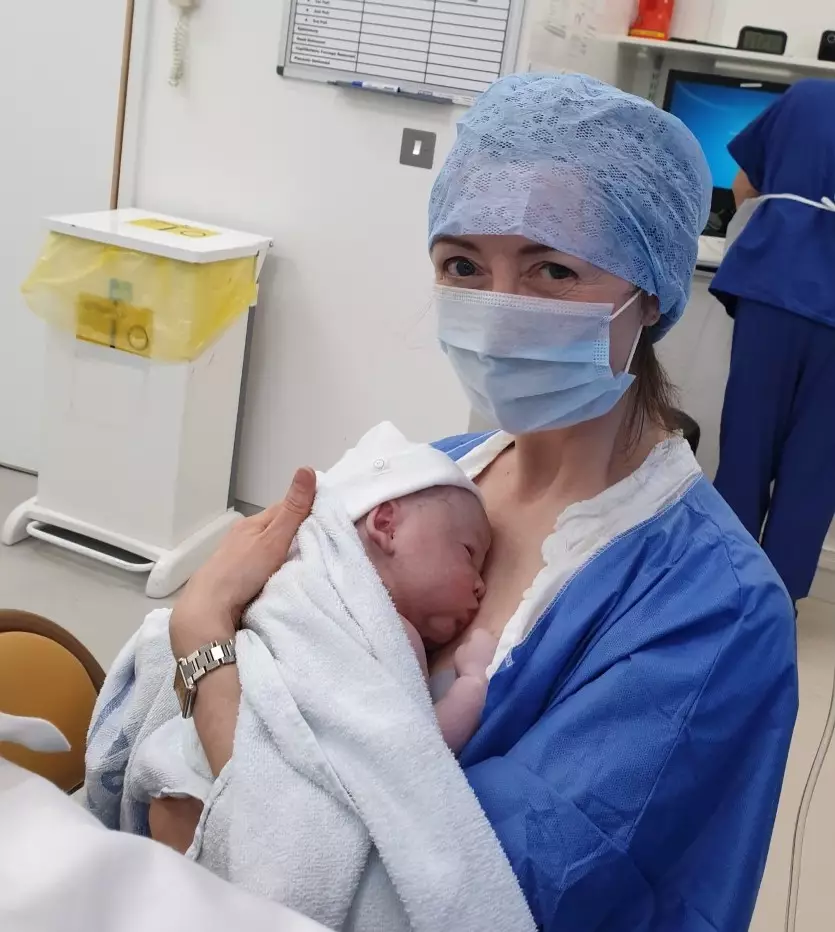
Topics: Real,, Pregnancy, Life News, Coronavirus, Parenting